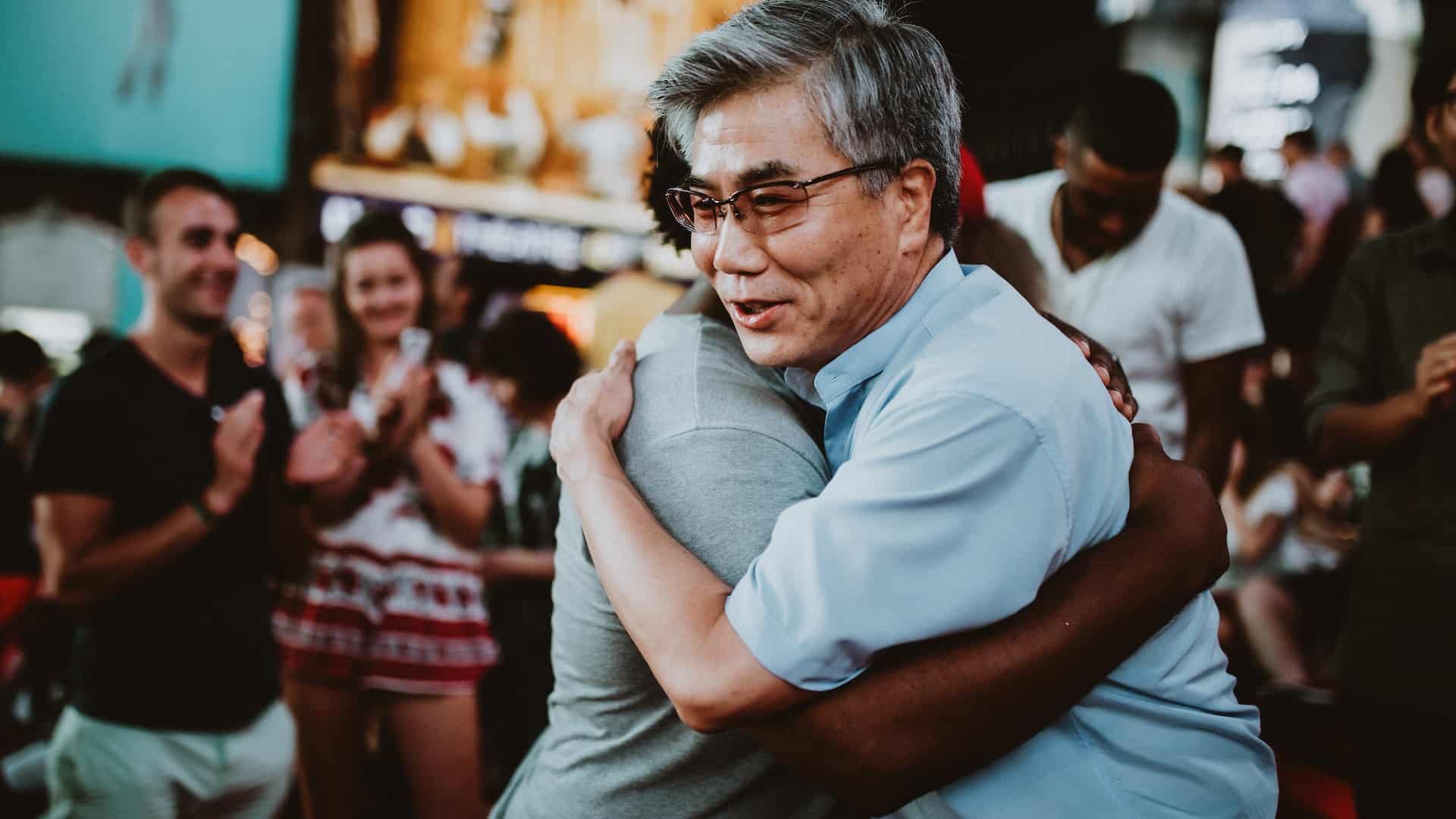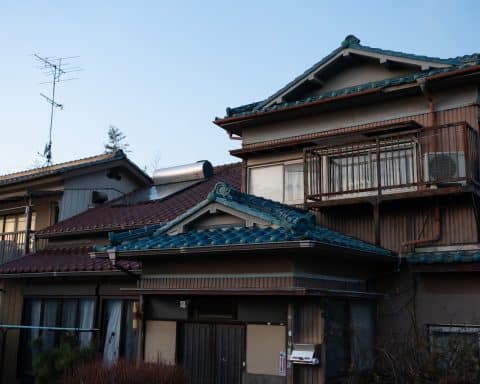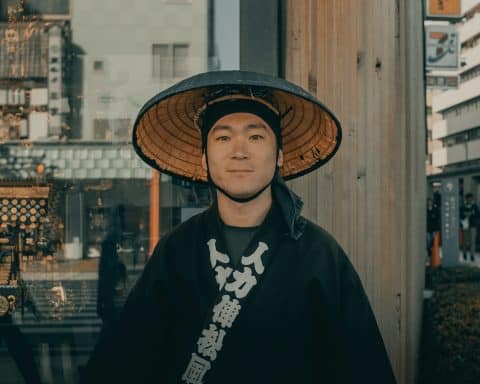I’ve lived in Japan for a while now, and what’s become clear to me over this time is the lack of physical contact I see. While I’m sure that it doesn’t mean people don’t love each other as much, it definitely got me asking the question ‘Why don’t Japanese people hug?’. So, I did a load of research to find out!
Japanese people usually don’t hug due to social norms, respect for personal space, and its implied meanings. Ideally, no one wants to break the status quo and be that one person (or people) that don’t fit in or cause offense or discomfort to others, especially outside of the home.
With that said, you may think Japanese people cannot show affection to one another, however having lived here for a while I can tell you that’s not true. There are some circumstances where Japanese people do hug, you just may never see it. Let’s talk about it!
My personal experience with hugging in Japan
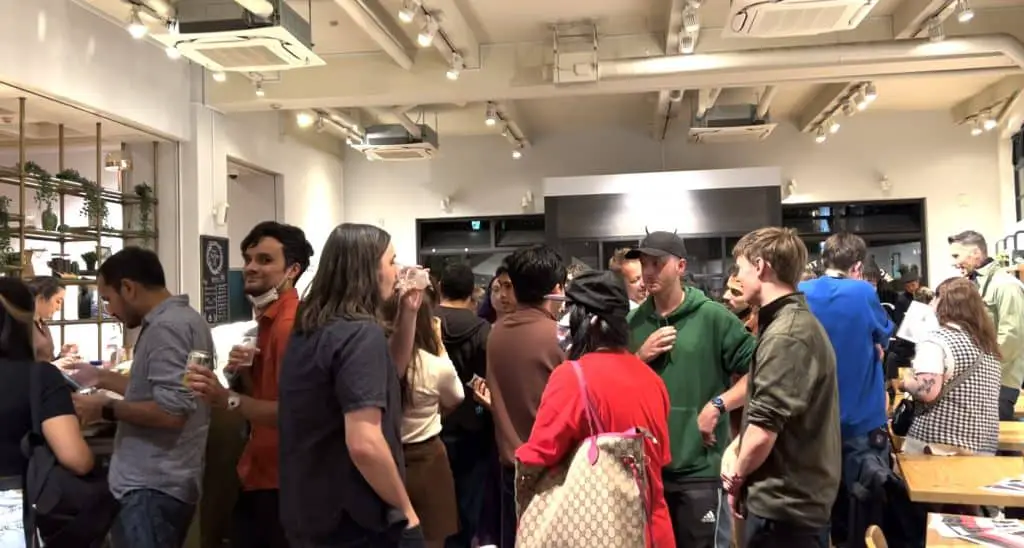
For context, I am (or at least was) a fairly huggy kind of person back in the UK. I would hug my guy friends when I saw them, and none of us would think anything of it.
Here in Japan, things are a little different. I’ve been to a few networking events for creators in Tokyo (we filmed the video above, with a very small section of our networking event in Shibuya), and while it was nice to meet a group of English-speaking people I could be myself around, I was honestly unsure whether to hug them or not, and I think it was the same for them.
As an age group, we all hug fairly frequently, but living in Japan for such a long period of time makes you either doubt yourself or have the same thoughts that Japanese people do without realizing it. It’s not a good or a bad thing, but it definitely happens to a lot of us.
Hugging family in Japan
I think this one will differ depending on the family, but it doesn’t happen where I live.
As we’ll find out later, it’s sort of… not needed if that makes sense. Just because you don’t hug, doesn’t mean you don’t love or care for each other.
Cultural norms
A lot of these thoughts and feelings that Japanese people have are completely commonplace and come from a collection of cultural and social norms that everyone follows (and is brought up with).
Respect for personal space
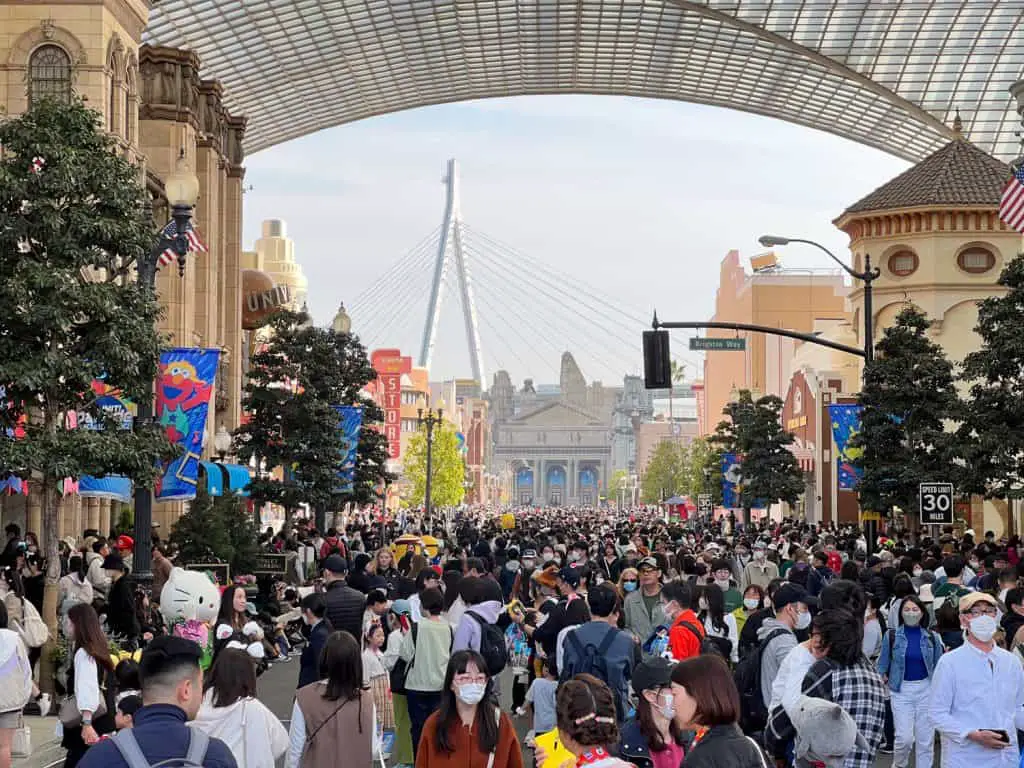
As someone who lives in Japan, I can attest that Japanese people don’t hug often or casually as other cultures might. One of the reasons is that respect for personal space is a significant cultural value for Japanese people.
Many people tend to believe that physical contact should only occur under specific circumstances and within intimate relationships. Therefore, it’s seen as disrespectful to unexpectedly invade somebody else’s personal space with a hug.
Try and hug someone on your trip to Japan and more often than not, you’ll probably be met with a few funny stares!
That said, Japanese culture does embrace certain types of physical contact such as handshaking and bowing respectfully, which are viewed more positively due to their less intrusive nature.
Non-verbal communication and subtle gestures
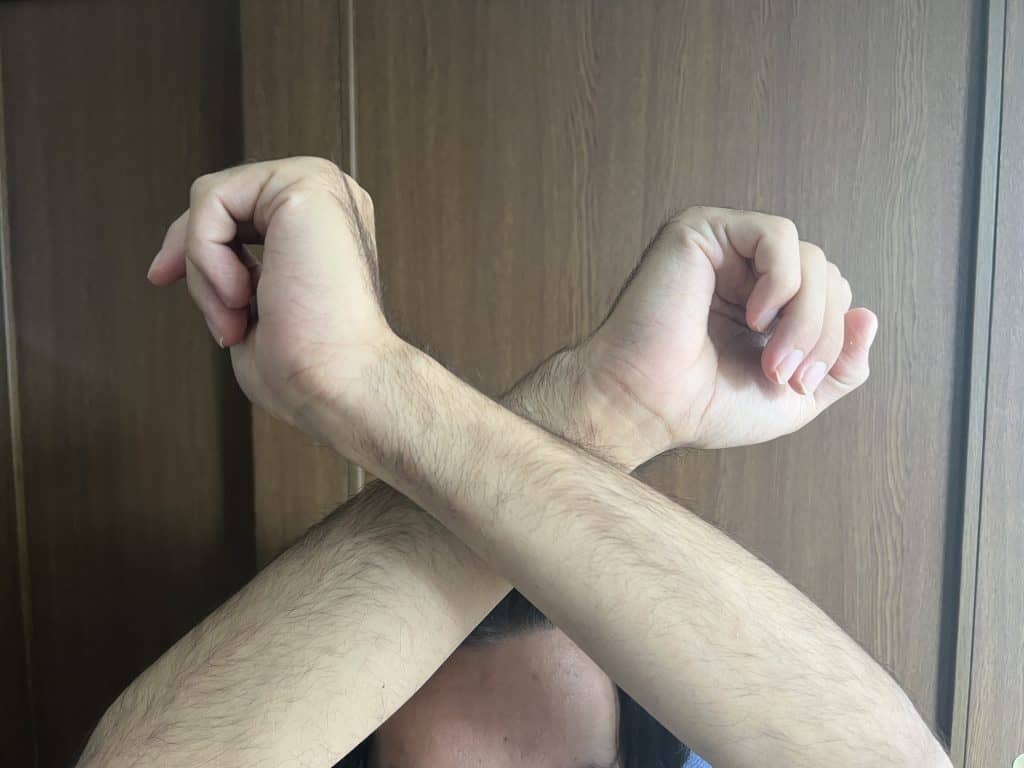
Non-verbal communication also plays a significant role in Japanese culture, with emphasis placed on subtle gestures, facial expressions, and body language. Instead of relying on physical touch, Japanese people utilize these non-verbal cues to convey emotions, intentions, and connections.
This was something that took me a while to get used to, and likely something you’ll struggle with in the beginning if you’re planning to move to Japan.
There are quite a lot of significant Japanese body language and gestures it’s worth knowing, but that’s better saved for another article.
The main one I’ve come across is the crossed arms above the head or in front of the body. Usually, this is to decline, refuse, or advise people not to do/go somewhere. It seemed a little harsh at first (and still does, to be honest), but the more I’ve seen it, the more I understand it’s not intended that way.
This general cultural preference for non-verbal communication reduces the reliance on hugging as a means of expressing affection. A simple head nod, bow, or hand gesture can convey the same message in its entirety.
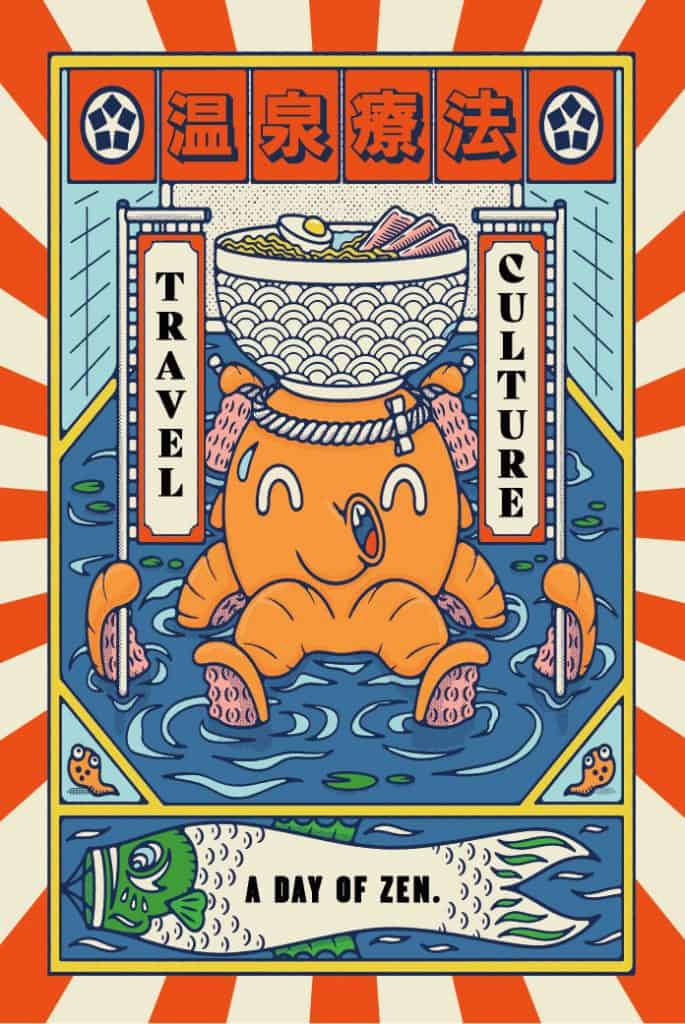
Business card exchanges and omiyage are two other popular ways in Japan of expressing affection. They aren’t used on all occasions of course but in the right setting, they’re incredibly important.
In business settings, exchanging cards is a crucial part of introducing yourself and building relationships. It is seen as an important cultural gesture that conveys respect, and coupled with a bow can be compared to the Western handshake.
I’ve been to lots of networking events in Japan, and the process of handing over business cards as well as introducing yourself isn’t the same as it is in the UK or US. I’m not suggesting you run up and hug someone at a networking event (unless you feel like it?…), I’m just trying to explain the intricacies and differences in Japanese gestures and communication.
Similarly, giving omiyage (small gifts) when returning from a trip is a way of saying thank you or showing appreciation. A small bow is about the most I’ve ever received in return, even when giving something to the family.
For the most part, accepting gifts like this is culturally very different from many places in the Western world, so I wouldn’t expect a hug anytime soon from the majority of people. Not all people, just most of them.
Social harmony

Social harmony, known as “wa” in Japanese culture, is a fundamental value that greatly influences the limited use of hugging in Japan. Japanese society places a high emphasis on creating and maintaining a peaceful and cohesive social environment, probably something you’ve noticed if you’ve ever been here.
Excessive physical contact, including hugging, can be seen as disruptive to the overall sense of harmony. As I’m sure you’re aware, Japanese people strive to avoid actions that may cause discomfort or draw attention to themselves in public settings, as it goes against the cultural norm of blending in and not causing disruption.
By refraining from hugging, individuals contribute to the collective effort of fostering a tranquil atmosphere, where everyone can coexist harmoniously. Respecting social harmony is deeply ingrained in Japanese culture, and this cultural value plays a significant role in shaping the behavior and norms surrounding physical affection, emphasizing more reserved forms of expression in place of hugs.
Traditional Etiquette
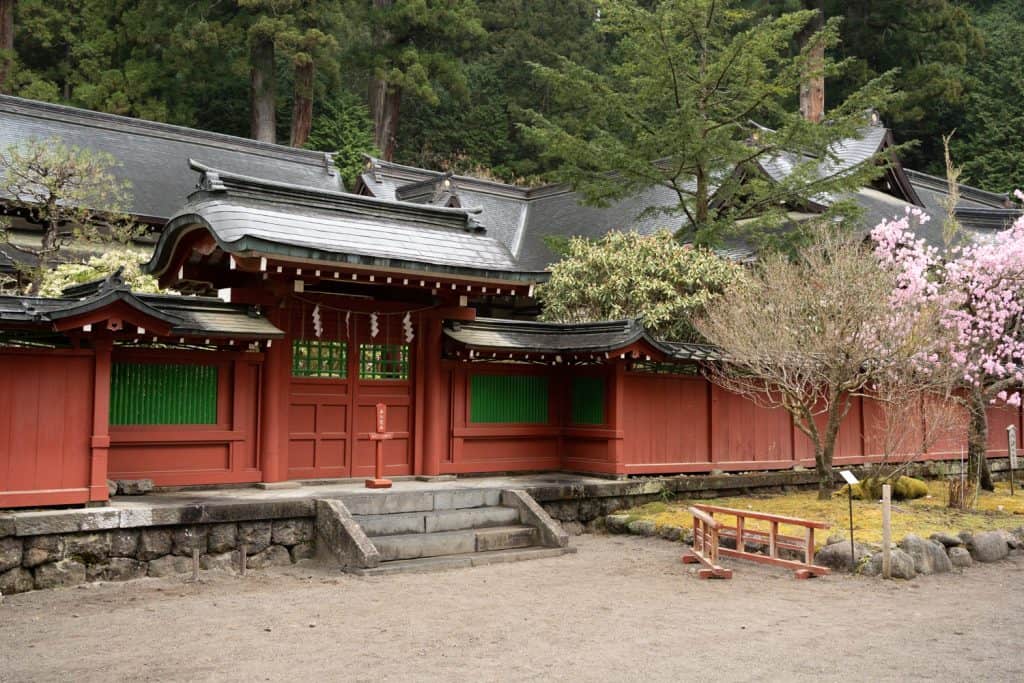
‘If it ain’t broken, don’t fix it’.
That’s a saying I’ve written down many times on this blog and it’s one that sort of applies here as well. Everything we’ve talked about so far is deeply ingrained into Japanese culture and has almost become a kind of traditional etiquette.
All countries are absolutely different, and the prevalence of hugging isn’t something I see changing anytime soon. Having said that, there are some circumstances that potentially go against the grain, and occasions where Japanese people do hug.
When Japanese people do hug
Contrary to the overarching message of this article that Japanese people don’t hug, they actually do in certain situations. However, it’s probably a little different from what you’re used to.
1. Close friends
If there’s a video that illustrates my point, it’s this one.
On the face of it, Japanese guys and girls are asked whether they hug each other and then the host hugs them. Most are receptive to the hugs, and a lot actually do say they hug when they meet up with friends, as a way to greet one another.
The issue is, a lot of these hugs seem awkward and they are not really hugs in the same emotional sense that you or I might have. Of course, everyone is different, but when you take a wider look at it, it says more about society than it does about the individual.
While hugging with friends may be fairly commonplace in Japan, there are points in this video where some of them say that no, Japanese people don’t hug at all. So it’s important to remember that it’s often on a case-by-case basis. Some people like to and some don’t!
2. Close family members
Again, this one depends on the family. My partner and her family don’t hug at all, and nor does anyone in the family. It’s strange to see at first, but when you realize they’re just cultural differences, I understand the reason behind it at least.
In a sense, I feel like Japanese parents and family members are tactile with the younger children, but then there comes a point where that starts to disappear. It’s like they want to hug, but feel it would be inappropriate.
3. Special occasions
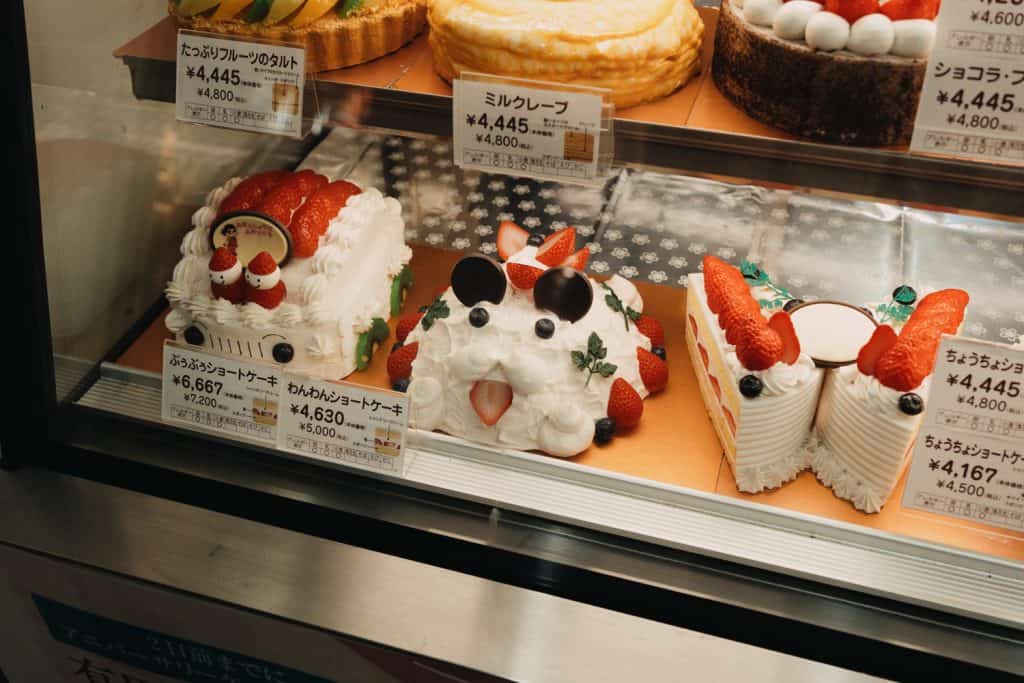
Even if you belong to a family or group of friends that doesn’t actively hug in Japan, special occasions may be a situation in which that changes, even temporarily.
Birthdays, reunions, weddings, or even certain social gatherings are all occasions where people may act slightly differently. Perhaps it’s because of the relaxed atmosphere which might make people feel like hugging is more acceptable.
4. Western influence and environments
It’s important to remember hugging is also prevalent in certain Western environments within Japan, for instance: international schools, ex-pat communities, and tourist destinations. While they aren’t exclusively Japanese people, they’re still areas of life that expose Japanese people to this behavior.
With increased exposure to Western influences like this (as well as tv, books, movies, and even anime), some may adopt hugging as a form of greeting or affection. This influence has led to a gradual shift in social norms, especially among younger generations. So it wouldn’t surprise me in the slightest if over the next few generations, we see some big changes in the number of Japanese people that hug!



